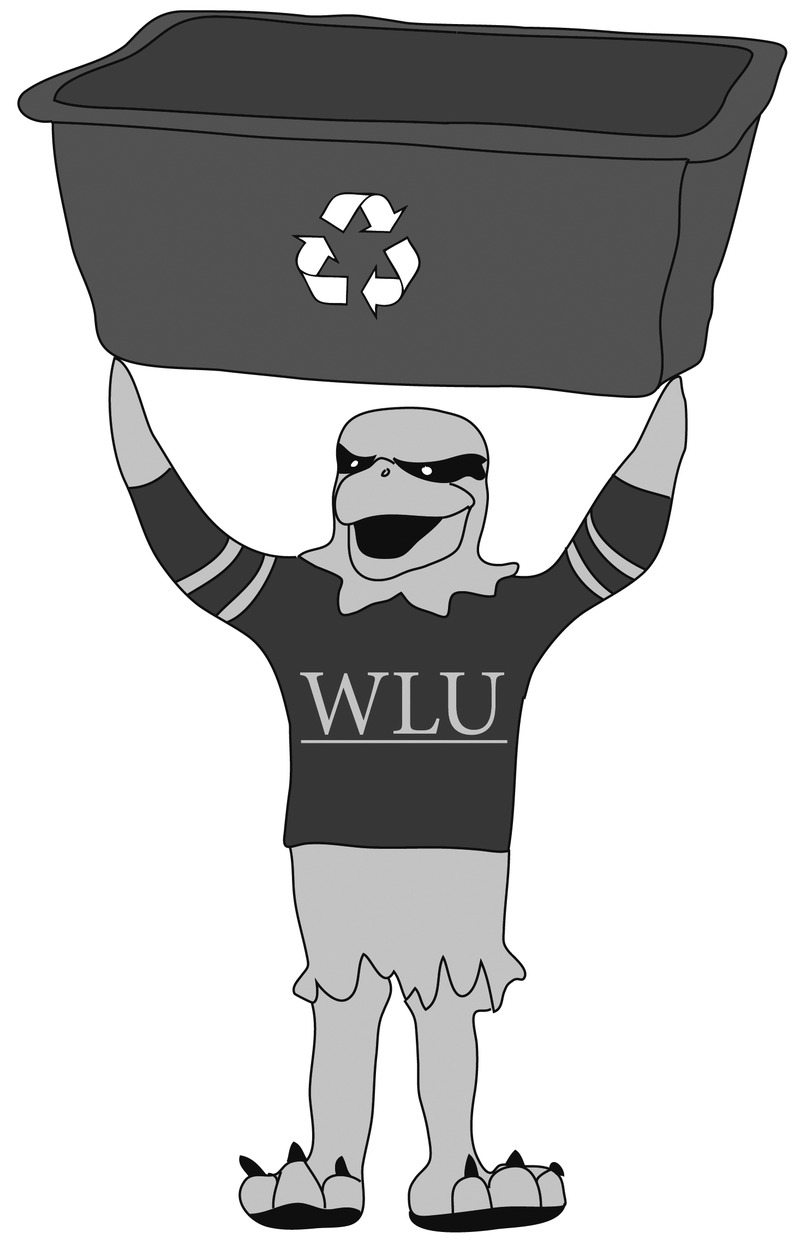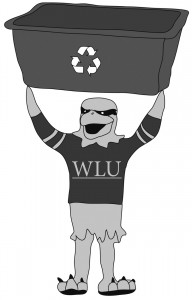WLU, Sustainable Waterloo strengthen ties

Wilfrid Laurier University took a step towards becoming more green this past week by confirming their commitment to increase the environmental sustainability of the institution.
Shedding its status as an observing member of Sustainabile Waterloo Region’s Regional Carbon Initiative (RCI), the university has taken on the role of pledging partners.
As a result, WLU will be working to reduce its carbon emissions by 25 per cent per square foot on the Waterloo and Kitchener campuses over the next ten years.
“It’s really exciting for the university to be taking such a meaningful step,” stated Mike Morrice, executive director at Sustainable Waterloo Region and a Laurier grad. “Laurier is now one of only eleven other pledging partners that have made reduction commitments.”
Sustainable Waterloo Region works with local organizations to assist them in advancing their environmental sustainability. The Regional Carbon Initiative is one of their leading programs, which focuses on supporting organizations in their commitments to reduce greenhouse gas emissions.
“Even more impressive,” Morrice added, speaking to WLU’s commitment to the RCI, “is that the university first created a Sustainability Action Plan.”
The Sustainability Action Plan, developed by the Sustainability Office at Laurier, has a larger scope that extends beyond the RCI target of reducing greenhouse gas emissions. The sustainability goals outlined by the plan are centred around education, operations and community partnership.
Morrice noted that WLU has taken on a unique initiative, as few universities have made commitments with an action plan to back them up.
Claire Bennett, sustainability coordinator at WLU, was thrilled by the response from the building and properties group and the board of governors, which both had to approve the action plan.
“I couldn’t have imagined a better reception at both of those meetings; it was wonderful,” expressed Bennett.
Bennett has already completed three projects since the sustainability action plan was approved on April 12: the installation of 12 filtered water-fill stations around campus, a water harvesting/natural landscaping project adjacent to MacDonald House, which solves drainage and flooding issues and a secure bike storage facility.
Outreach, Bennett highlighted, is an equally important aspect of the plan.
“I have a very close relationship with the EcoHawks,” she stated. “They’re great for the outreach stuff because it’s much more peer to peer.”
The institution of sustainability reps on house council in residences this past year has also been helpful in educating students about sustainability.
“A lot of the time it’s really just educational,” Bennett admitted. “Outreach is a huge prerogative. Behavioural change is probably more important than anything you can do physically.”
If students are interested in becoming more involved with environmental sustainability at WLU, Morrice suggested they connect with Bennett, but also seek out student groups.
“Laurier is lucky to have both support in administration through the Sustainability Office, but also a very active student population when it comes to sustainability,” Morrice continued.
In Bennett’s eyes, the commitment WLU has made to Sustainable Waterloo Region as a pledging partner will only benefit them in achieving their goals. It is a step forward in holding the university accountable as a leader in carbon emission reduction.
“I’m very proud of Laurier for being so receptive to everything and working so hard for sustainability initiatives,” concluded Bennett.



